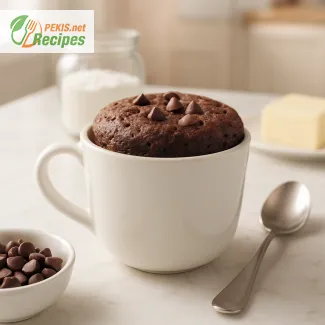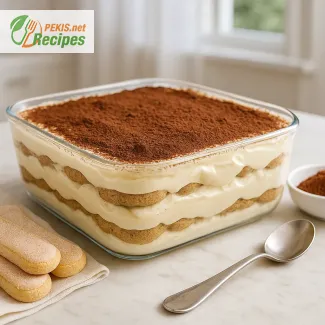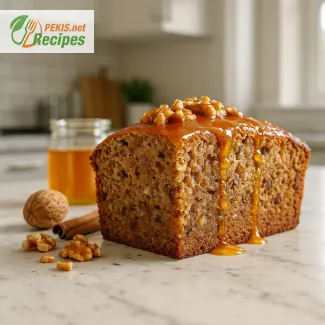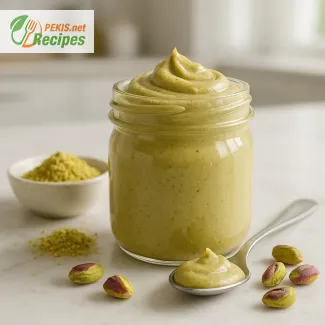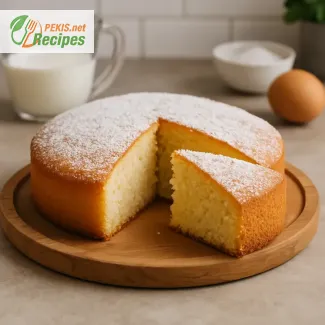
One-Egg Cake Recipe: A Simple Delight for Every Occasion
Why a One-Egg Cake is the Perfect Choice for Any Home Baker
If you’re looking for a quick and easy dessert that still brings the perfect balance of flavor and texture, then this one-egg cake recipe is exactly what you need. With minimal ingredients and minimal preparation time, you can create a soft and moist cake that will be perfect for any occasion – from casual tea times to a special family gathering. Whether you're an experienced baker or a beginner, this simple cake will become your go-to recipe when you're craving something sweet without a lot of hassle.
In today's world, simplicity is key. We often find ourselves with limited time but still want to enjoy delicious homemade treats. This one-egg cake is the answer, offering an indulgent flavor that doesn’t require a lengthy ingredient list or complicated methods. Perfect for those times when you need a quick solution for dessert without sacrificing quality or taste. This cake will delight anyone who tries it, and the best part is, it’s customizable, so you can easily adjust it to your taste by adding your favorite flavors or toppings.
A Versatile Dessert That Fits Many Occasions
This one-egg cake is incredibly versatile, making it a perfect base for many variations. You can turn it into a fruit cake by adding fresh berries or a handful of raisins, or spice it up with a dash of cinnamon or vanilla for a warm, comforting treat. The beauty of this recipe is its ability to cater to many tastes and preferences without requiring extra time or effort.
For those who love rich and decadent desserts, this cake can also be paired with a chocolate glaze or a frosting of your choice. It's a great way to experiment with different flavor combinations. You can even serve it as a light dessert with a scoop of ice cream or a dollop of whipped cream to elevate the experience. The cake's simplicity allows for endless creative opportunities – making it a great choice for both casual family gatherings and more festive occasions.
Easy to Make with Minimal Ingredients
One of the main reasons this one-egg cake is such a beloved recipe is because of its simplicity. With just a few basic ingredients, you can have a delicious cake ready in no time. The beauty of using only one egg is that it reduces the complexity while still delivering the tender texture that every cake lover desires. Whether you have a busy day ahead or simply want a quick dessert for after dinner, this cake will give you just the right amount of sweetness and satisfaction.
The ingredients required are common staples found in most kitchens, making it a budget-friendly dessert option. If you’re missing one ingredient or two, substitutions can easily be made. For example, if you don't have butter on hand, you can use vegetable oil, or if you're out of milk, a dairy-free alternative works just as well. These substitutions make the recipe even more accessible, ensuring that you don't need to run to the store every time you get the urge to bake something quick and delicious.
Why You Should Try This Cake Today
When you’re looking for a no-fuss dessert that tastes incredible, the one-egg cake is the perfect solution. It’s an excellent choice for beginner bakers, as it requires minimal steps and no special skills. It’s also a great recipe for when you’re baking on a tight schedule but still want something that feels homemade and personal. Its light, fluffy texture and subtly sweet flavor will impress your family, friends, or anyone who has the pleasure of tasting it.
How to Customize the One-Egg Cake to Your Taste
Though this one-egg cake recipe is delicious on its own, the real magic happens when you add your personal twist. Adding fruits, chocolate chips, or even a few drops of extracts such as almond or lemon can completely transform the flavor profile to suit any occasion or preference. Want a more tropical flavor? Try adding some finely shredded coconut or a few crushed pineapple pieces. Or, if you prefer a richer flavor, a spoonful of cocoa powder can turn this simple cake into a satisfying chocolate treat.
Whether you prefer it served plain, dusted with powdered sugar, or topped with a generous helping of frosting, this cake can fit any preference or dietary need. It’s the perfect foundation for your creativity, allowing you to enjoy the process of making a dessert that feels truly your own.
This one-egg cake recipe delivers on both flavor and simplicity, making it an essential dessert to add to your baking repertoire. It’s a true crowd-pleaser that you’ll return to time and time again, whether you're in the mood for a quick snack or preparing something special for friends or family.
- Preheat your oven to 180°C (350°F). Grease a round cake pan (20 cm or 8 inches) with butter or line it with parchment paper.
- In a mixing bowl, cream the butter and sugar together until light and fluffy, using a hand mixer or a whisk.
- Add the egg and beat until well incorporated. Then, pour in the milk and vanilla extract, mixing everything together until smooth.
- In a separate bowl, sift together the flour, baking powder, and salt.
- Gradually add the dry ingredients to the wet mixture, stirring gently until just combined. Be careful not to overmix.
- Pour the batter into the prepared cake pan and spread it evenly.
- Bake for 25-30 minutes, or until a toothpick inserted into the center of the cake comes out clean.
- Allow the cake to cool in the pan for 10 minutes, then transfer it to a wire rack to cool completely.
Creative Ways to Elevate the Classic One-Egg Cake
Flavorful upgrades and baking insights for a softer, more delightful cake
The one-egg cake is celebrated for its simplicity, but that doesn't mean it can't be transformed into something even more special. With just a few smart tweaks and ingredient swaps, this modest cake can become a centerpiece-worthy dessert. Whether you're aiming for deeper flavor, a healthier alternative, or a more refined texture, there are countless ways to enhance this traditional recipe while staying true to its essence.
Using different fats for texture and taste
One of the simplest changes that can make a noticeable difference is substituting butter with oil. While butter lends a rich flavor and slightly firmer crumb, using neutral oils like sunflower or light olive oil will result in a moister, fluffier texture. This is especially beneficial if the cake will be stored for a few days, as oil-based cakes tend to retain softness longer.
Another variation is using brown butter, which adds a deep, nutty aroma. This upgrade subtly elevates the cake’s flavor and pairs beautifully with spices or nuts.
Enhancing flavor with spices, zests, and extracts
Adding citrus zest, such as lemon or orange, introduces brightness and freshness. A teaspoon of zest can dramatically enhance the cake’s fragrance without overpowering its delicate structure.
For warmth and depth, a pinch of cinnamon, nutmeg, or even a dash of cardamom can make the cake feel more seasonal and comforting. Vanilla extract is a staple, but consider switching to almond or hazelnut extract to give the cake a nutty backbone, especially when paired with fruits or glazes.
Fruit, nuts, and mix-ins for added interest
Incorporating fresh or dried fruits can create pleasant bursts of flavor and moisture. Blueberries, chopped apples, or raisins are excellent additions. If using fresh fruit, lightly coat the pieces in flour to prevent them from sinking during baking.
For texture, adding crushed walnuts, almonds, or pecans provides a satisfying crunch and enhances the cake’s nutritional profile. Be mindful of nut allergies and always provide alternatives like sunflower seeds or pumpkin seeds.
Healthier ingredient swaps
To reduce refined sugar, try replacing part of the sugar with honey or maple syrup. Not only does this slightly lower the glycemic impact, but it also brings unique undertones of flavor. You can also use whole grain flour instead of standard all-purpose flour for a richer, denser texture and added fiber, though this will result in a less airy cake.
For dairy-free options, plant-based milks such as oat, soy, or almond milk work well and don’t compromise the final texture. These swaps make the recipe more inclusive without losing its signature simplicity.
Common mistakes to avoid for consistent results
While the recipe is forgiving, several common pitfalls can affect the outcome. Overmixing the batter is a frequent issue that leads to a dense or rubbery cake. Stir only until the ingredients are just combined to preserve the tender crumb.
Incorrect oven temperature is another problem—always preheat the oven and avoid opening the door too often while baking. Sudden temperature changes can cause the cake to sink in the middle or bake unevenly.
Using cold ingredients can also hinder the emulsion of fats and liquids, resulting in a lumpy or uneven batter. Allow the egg, butter, and milk to reach room temperature before mixing for best results.
Frosting, glazing, or dusting: final touches matter
This cake is delicious on its own, but adding a light glaze, simple icing, or fruit compote can elevate it to a more elegant dessert. A lemon glaze made from powdered sugar and citrus juice adds tang, while a chocolate ganache provides richness and contrast.
For a minimal approach, a dusting of powdered sugar gives the cake a charming, homemade appearance and can be varied with shaped stencils or mixed with cinnamon for added aroma.
Why homemade always tastes better
Making this cake from scratch gives you full control over the quality of ingredients, resulting in a purer, more honest flavor. Store-bought cakes often contain preservatives, artificial flavors, and excessive sweetness. With this homemade one-egg cake, you can enjoy a balanced, authentic taste with fewer additives and a sense of personal pride.
This cake is also a perfect way to teach children the basics of baking, thanks to its minimal steps and ingredients. It's an excellent reminder that baking doesn’t have to be complicated to be rewarding.
The role of eggs and why one is enough
In traditional baking, eggs provide structure, moisture, and richness. Using just one egg may seem limiting, but in this recipe, it allows for a light, sponge-like texture without making the cake too rich. This balance makes it suitable for pairing with many toppings or enjoying on its own.
If needed, the egg can be replaced with a flaxseed mixture (1 tbsp ground flaxseed + 3 tbsp water), especially for those with allergies or following a plant-based diet. The result won’t be identical but remains pleasantly soft and moist.
Tips for presentation and serving
Presentation is part of the joy of baking. Slice the cake into even wedges and serve with a side of fresh berries, a sprig of mint, or a light cream topping. If serving for guests, a drizzle of fruit syrup or a decorative glaze can turn this humble dessert into a table highlight.
Keeping the cake covered at room temperature preserves its texture for 2–3 days. For longer storage, wrap it well and freeze for up to two months—perfect for a make-ahead dessert that’s always ready to impress.
Allergens Present:
- Gluten (from flour)
- Dairy (from butter and milk)
- Eggs
Substitutions for Allergens and Gluten:
- Gluten-free: Use a gluten-free all-purpose flour blend instead of regular flour.
- Dairy-free: Replace butter with plant-based margarine and use non-dairy milk such as almond or oat milk.
- Egg-free: Use a flax egg (1 tbsp ground flaxseed + 3 tbsp water, let sit for 5 minutes).
Vitamins and Minerals (per serving):
- Vitamin A: 250 IU (supports eye health and immune function)
- Vitamin D: 15 IU (important for bone health)
- Calcium: 50 mg (supports bone strength)
- Iron: 1 mg (supports oxygen transport in the body)
Antioxidants (per serving):
- Vitamin E: 1.5 mg (helps protect cells from oxidative damage)
- Polyphenols: Small amount from vanilla extract (help support heart health and reduce inflammation)
